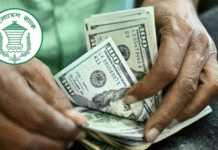Private sector credit grew by only 11.04 percent last fiscal year — the lowest in 13 years — due to low investment as uncertainty ahead of the national polls has dented investor confidence, bankers said.
Extreme caution adopted by banks in the backdrop of various scams in recent times also squeezed credits, they said.
Such credit grew by 19.72 percent in fiscal 2011-12. After the grand alliance government led by the Awami League assumed power in 2009, the growth was more than 24 percent in fiscal years 2009-2011.
The lowest growth, 10.75 percent, was seen last in fiscal 1999-2000. Zahid Hussain, lead economist at World Bank in Bangladesh, said private sector credit growth usually marks a fall in every election year.
But this year the situation worsened due to prolonged political violence that disrupted economic activities, he added.
A slow recovery in the global economies, the cancellation of Bangladesh’s GSP (generalised system of preferences) in the US, and compliance issues at garment factories following a few deadly accidents also took a toll on investment, Hussain said.
Bankers were extra-cautious in giving loans after several banking irregularities were detected, the economist said.
Bangladesh Bank Governor Atiur Rahman sat with the chief executives of all banks on August 25 and said there was no problem from the supply side in granting loans.
Rahman also asked the bankers to encourage long-term investors and extend cooperation in getting loans without hassle.
The governor made the call a month after the BB announced its monetary policy where the private sector’s credit growth target was cut over the previous fiscal year’s.
The target for the current fiscal year was brought down to 16.5 percent from 18.5 percent in the previous year.
The central bank’s monetary policy statement released in July said the credit growth slowdown is partly due to sluggish investment demand in the lead up to the national elections and tighter lending practices by banks.
Also there emerged two new channels through which entrepreneurs can access overseas lenders, including existing term borrowing from the external sector, the BB said.
One existing channel is borrowing by local firms for term credit purpose with most having a maturity beyond five years — around $1.48 billion was approved in fiscal 2013 compared with $1 billion a year ago.
Private capital flows to the local companies have also grown due to the addition of short-term foreign currency loan for working capital purpose.
These newly introduced facilities in the form of ‘buyer credit’, which importers can enjoy with a tenure of up to one year, and ‘discounted export bills’ have led to a $784 million inflow during the July-May period of fiscal 2013, the BB said.
A central bank official said, if foreign borrowing is included, the private sector credit growth will increase by more than 1 percentage point.
Frequent shutdowns and political violence in the first half of the year have dented confidence of the investors who are still following a wait-and-see policy, he said.
Bangladesh’s import increases every year but the volume of such trade dropped by 4.36 percent last fiscal year, the official said.
Capital machinery import fell by 15.85 percent last year and that of industrial raw materials by 2.50 percent, according to LC (letter of credit) settlement statistics of the central bank.
Officials at some private and state banks said a number of banking scams were detected in 2012 and the BB, for the first time, identified those as criminal offences and referred to the Anti-Corruption Commission.
The anti-graft body interrogated officials of both public and private banks on suspicion of their involvement in the irregularities.
As a result, the bank officials became overcautious in granting loans, an official of Sonali Bank said.
The BB also cut the credit growth targets, by 8 percent to 12 percent, of five state banks who disburse a big chunk of the total credit.
Source: The Daily Star










